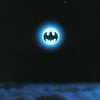Bulls Be Careful cuz this time it's different.
Bernanke might not cut rates for bailout
By Rachel Beck
The Associated Press
NEW YORK - Some investors are betting that if the economy really starts slumping, the Federal Reserve will bail them out sooner rather than later by lowering interest rates.
Storybook endings like that can happen - just look at how former Fed Chairman Alan Greenspan altered monetary policy to stem the fallout from market shocks at times during his 18-year tenure, which then helped fuel markets gains.
But such interest-rate moves are far from guaranteed, especially at today's Ben Bernanke-led Fed, which faces the double challenge of rising inflation and slowing economic growth at a time when productivity growth is also declining.
There is plenty of debate in financial markets lately about the likelihood of the something known as the "Bernanke put." Technically, a "put" is an option contract that gives the owner the right to sell an asset at a set price by a set date.
This concept - an insurance policy of sorts that protects against risk - was first coined as the "Greenspan put" after he quickly lowered interest rates during his time at the Fed's helm in order to reduce the potential sting of troubling events.
Take, for instance, what happened in the summer of 1998 when Russia defaulted on $40 billion of sovereign debt and the highly regarded hedge fund Long-Term Capital Management lost billions of dollars as a result of bad bets. That sent stocks plunging and Treasury bond prices soared as investors ran from risk.
Greenspan's Fed responded by knocking down the overnight bank loan rate three times in the following months, despite the healthy economic growth, low unemployment and apparent inflationary pressures.
By making it cheaper for companies to borrow money, markets were energized again. Stocks set off on what would be an unprecedented run during the late 1990s dot-com boom.
Today's market shock has come by way of the collapse in subprime mortgage business, which has imploded as individuals with shaky credit have increasingly defaulted on their home loans. That has rattled investors over the possibility of a widespread credit squeeze if all lenders clamp down on borrowing, which would then mean fewer mortgages issued at a time when there is already a glut of housing supply.
It is too soon to tell how that will spill over to the broader economy, though strength in the labor market and continuing growth in consumer spending, at least for now, have helped prop things up.
Since last August, Bernanke's Fed has left the overnight rate steady at 5.25 percent, breaking a streak of 17 consecutive quarter-point increases that began in 2004 amid evidence of slowing growth. But now that the economy is showing signs of fatigue, there is a growing belief among some market participants that the Fed will loosen monetary conditions if growth retreats.
That view was fed in part by the Fed's statement after its March policy-making meeting, where it dropped the language indicating a bias toward future rate increases. That "more dovish policy statement is acting to reassure investors that, should the housing downturn accelerate, the [Fed] will act to stimulate growth," said Alec Young, an international equity strategist at Standard & Poor's.
But investors shouldn't necessarily count on it. The current Fed chairman might not be so fast to inject liquidity in the market - at least when his priority seems to be fighting inflation first, not stimulating economic growth.
In testimony before Congress last week, Bernanke said the Fed's predominant concern continues to be pricing pressures and warned that underlying inflation remains "uncomfortably high."
Backing that view was a Commerce Department report March 30 that showed the Fed's preferred measure of core inflation - the core personal consumption price index - rose 0.3 percent in February, the biggest increase since a similar rise last August.
That left core inflation rising by 2.4 percent over the past 12 months, significantly higher than the Federal Reserve's 1 percent to 2 percent comfort zone. The year-over-year increase has not been exceeded since a 2.5 percent jump in April 1995.
At the same time, productivity growth, which usually moderates inflationary pressures, also has been slowing. For all of 2006, productivity rose by 1.6 percent, the slowest annual increase in nine years.
Morgan Stanley economist Richard Berner points out in a recent note to clients that the mortgage meltdown - and the market volatility that has come with it - might not spur an immediate change in monetary policy.
http://www.myrtlebea...ss/17045773.htm














